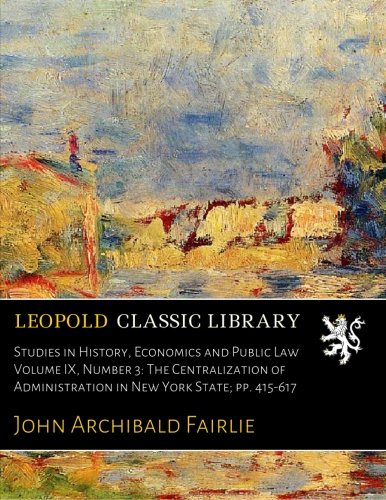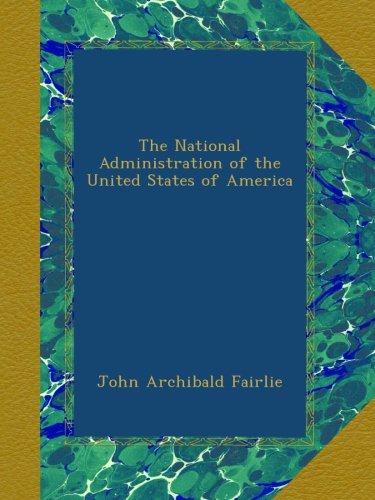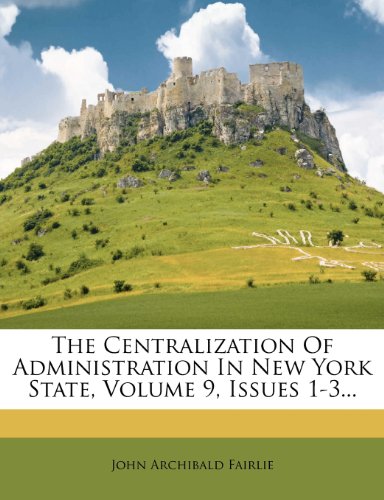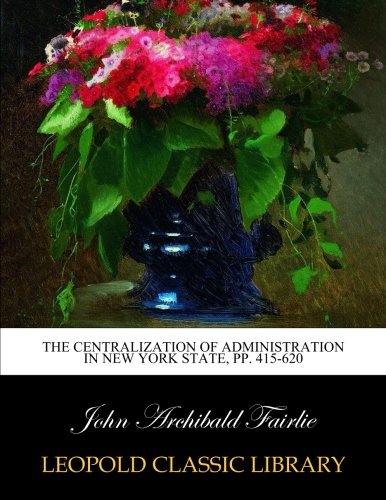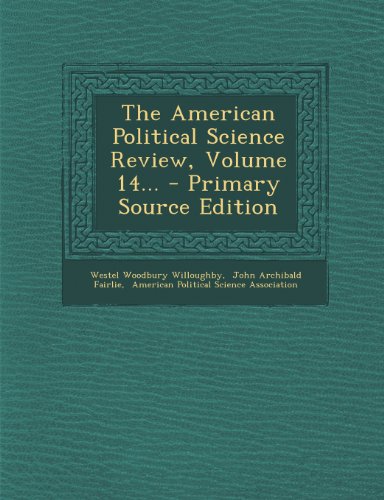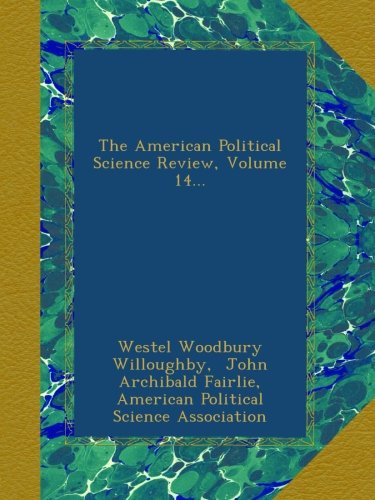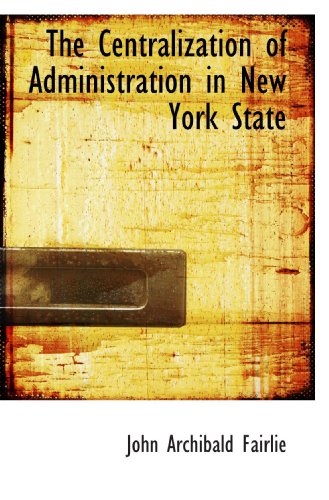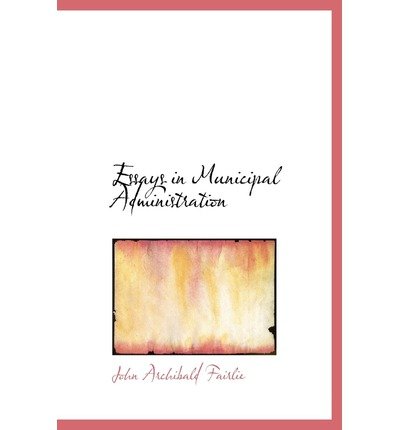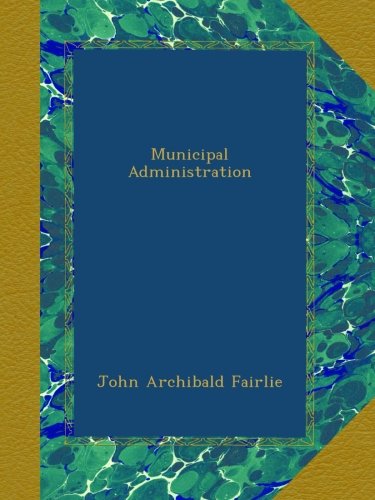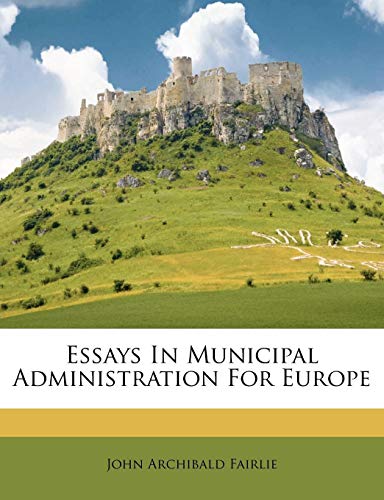John Archibald Fairlie was a Scottish-born political scientist who spent his professional career in the United States.
Background
He was born in Glasgow of an old Scottish family who held lands in Ayrshire and whose Fairlie Castle overlooked the Clyde near the village of Fairlie. His ancestors included farmers, tradesmen, and artisans at Bannockburn, Balfron, Killearn, and Glasgow.
He was the second of five children and the first of three sons of James Mitchell Fairlie and Margaret Simpson (Miller) Fairlie. James Fairlie was a chemist (druggist) who left Glasgow in 1879 after the failure of a venture in soft-drink syrup manufacturing.
He worked in New York City for two years and then opened a drugstore in Jacksonville, Florida, where he established his family when John was nine. Husband and wife were overwhelmed in relief efforts during the yellow fever epidemic of 1888 and both died that year.
The elder sister, Margaret, held the survivors together, and John worked as a shorthand typist for Jacksonville officials.
Education
He went to Harvard on a scholarship, graduated Phi Beta Kappa in 1895, and remained at Harvard for a master's degree, serving also as an assistant in history.
He then decided on the study of governmental institutions for his career and entered Columbia University's graduate school where, under Frank J. Goodnow, he wrote a dissertation on state government in New York.
Career
Fairlie's first book, Centralization of Administration in New York State, published in 1898, the year of his doctorate. Local government was in low esteem--James Bryce had called it "the one conspicuous failure of the United States"--when Fairlie made it his major area of concern and research. His book, Municipal Administration (1901), was in the forefront of treatments of American city government and its problems.
He became a specialist in a still more localized area through his book, Counties, Towns and Villages (1906).
With the publication of his Essays in Municipal Administration (1908), Fairlie stood as a leading young authority on the country's burgeoning cities, their growing needs and the means of meeting them.
This interest continued throughout his life and, in 1930, he and a junior colleague, Charles M. Kneier, brought out County Government and Administration. Fairlie directed public attention to the outmoded character of local units of government, asserting that counties, "established in the days of mud roads and ox carts, are too small for an age of motorcars and concrete highways" (American Political Science Review, Feb. 1930).
Meantime, Fairlie rose in the academic world. After holding the secretaryship of the New York State Commission on Canals, 1899-1900, under Governor Theodore Roosevelt, and also concurrently a lectureship on municipal administration at Columbia University, he was appointed an assistant professor of administrative law at the University of Michigan.
He continued at Ann Arbor until 1909, when he became associate professor of political science at the University of Illinois. Fairlie was promoted to professor in 1911 and served until his retirement in 1941.
During his last years he was head of his large and distinguished department (1938 - 1941) and a member of the graduate faculty. He also taught public administration, administrative law, jurisprudence, and a course on the government of Britain.
He directed the comprehensive work of the Illinois Efficiency and Economy Committee (1914 - 1915), established on the recommendation of Gov. Edward F. Dunne. Its proposals, in large part Fairlie's, became effective during the governorship of Frank O. Lowden and "set the pattern for state administrative reorganization in Illinois and numerous other states that undertook such reorganization" (Berdahl, p. 98). For six years he was an Urbana alderman.
His other public posts included: special agent in the United States Bureau of Corporations, 1908-1909; chief clerk of the Illinois Tax Commission, 1909; and chief of the War Department's procurement section, 1918-1919.
He was an editor of the University of Illinois Studies in the Social Sciences and served on many policy-determining committees.
In 1944 Fairlie had a major operation and, two years later, while in Atlanta, Georgia, visiting his brother, Andrew, he died of stomach cancer.
He was buried in Evergreen Cemetery in Jacksonville, Florida.
Religion
The Fairlie family was Presbyterian, but while at Harvard he joined friends in the Baptist church.
Politics
To Fairlie the university was a proper base for related public service. While in Michigan he was elected a delegate on the Republican ticket to the 1907-1908 state constitutional convention.
He was also secretary of the League of Michigan Municipalities, and when he went to Illinois, he became the chief founder of the Illinois Municipal League, of which he was also secretary.
Membership
In retirement, Fairlie was a visiting professor at the Ohio State University and remained an active member of the Illinois Public Aid Commission of the International Association of City Managers and the International Institute of Public Law.
He also served as a member of the Illinois Public Aid Commission, 1941-1946. Fairlie was a founder in 1905 of the American Political Science Association and managing editor of its Review, 1916-1925.
Personality
Phenomenal memory made him a remarkable bridge player. Friends remember him with moustache and goatee-shaped beard, holding a hand of cards at the Faculty Club in Urbana, checking galley proofs, and reading a newspaper seemingly at the same time.
Quotes from others about the person
"He was at his best in the graduate seminar, guiding and directing the students in their researches and in writing of their theses" (Berdahl, p. 97).




